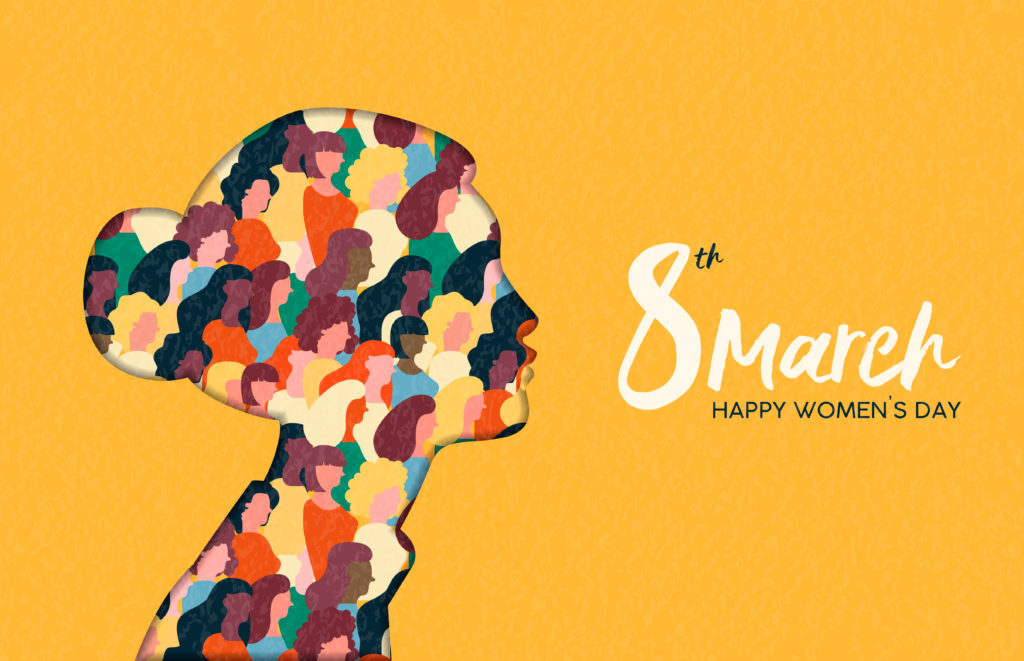Written by Bianca Baldo

With International Women’s Day happening today and its focus on celebrating women’s achievements and increasing visibility while calling out inequality, I started thinking about the impacts of COVID-19 on the many advancements that women in Canada have achieved in employment. Women carry out many roles and responsibilities, both in the formal and informal labour market. Women contribute to the economy while caring for others at home and within the community.
As a mother of three young children being homeschooled and a caretaker for a vulnerable elderly person, I have often questioned what is best for my career, mental health, and family. Are they mutually exclusive? Can we have it all? Unfortunately, these reflections are ongoing.
I have found comfort in honest conversations with my colleagues, friends, and family that explore solutions, expectations and limitations. My favorite saying these days is:
“If I don’t get into an argument with my family, drop deliverables at work or forget an appointment, it’s been a good day.”
As a society, the weight of the she-session, its impacts on formal care structures, and issues associated with gender equality, diversity, and inclusion remain important. For women who stayed in the workplace, the struggle to balance family-work obligations, workload, and mental health exist. For those women who lost employment, left the workplace for a family reason, or have negotiated mental health issues, such as depression, burnout, or anxiety, their integration back into a post covid workplace is critical. In both scenarios, it remains important to look at the long-term solutions and rebuild a gender-inclusive economy that helps women achieve economic prosperity, financial security, and work/life balance. Increasing awareness of women’s lived experiences during the pandemic can help strategize and develop best practices for a stronger tomorrow, one where Canadian women do not have to choose between career and family.
More women have left the workplace.
In the previous article Using GBA+, Inclusion and Diversity perspectives to support a healthy and efficient workplace, I explored some of the current gender equality issues surrounding women’s workplace participation. Since COVID-19, the number of women in Canada not in the labour market grew by 10%. It is estimated that 1.5 million women lost their jobs in the first two months of the recession. Complementarily, statistics have shown that nine percent of Canadian women working full-time in capital markets had considered leaving their jobs or taking a leave of absence. Trends exposed connections between industries that were particularly impacted by social distancing; were also dominated by women.
“The social distancing and lockdowns associated with the COVID-19 crisis have hit the women-majority service sector hard. Sectors whose activities involve social contacts, such as retail, hospitality, childcare, and personal services, were the first to shut down.” (Canadian Women’s Foundation)
Women disproportionate burden of unpaid care.
We have also seen that the already disproportionate burden of unpaid childcare being carried by women in the past has increased with the pandemic, specifically that women disproportionately carry the burden in the informal caregiving sectors.
“…even before COVID-19, women spent an average of 4.1 hours per day performing unpaid work, while men spent 1.7 hours – that means women did three times more unpaid care work than men worldwide. Both men and women report an increase in unpaid work since the start of the pandemic, but women continue to shoulder the bulk of that work. (UN Women, COVID-19 and its economic toll on women: The story behind the numbers)”.
Trends during COVID-19 illustrate that the second shift carried by women in the household varied from one household to another, but, on average, this can represent an additional 31.5 hours of work per week. It is equivalent to almost an extra full-time job for some. Many women have had to make hard decisions between leaving the workplace to care for others or burnout trying to balance existing obligations within this new reality. . We are still evaluating the impacts of both choices on women’s financial, emotional, psychological, and professional health. These challenges are exasperated by class, age, race, disability, and other identity factors that increase women’s vulnerability to economic instability.
Women are particularly vulnerable to stress, burnout, and depression.
An issue worth noting, it’s that women are experiencing increase mental health issues throughout the pandemic. Studies, such as the one done by Frontiers on Global Women’s Health, pointed towards the increased vulnerability of women for stress, burnout, and depression during the COVID-19 pandemic. Younger women and mid-career women with children and other obligations tend to be vulnerable to anxiety, stress, depression, and burnout.
Women experienced increased challenges to return to the workplace.
We are also seeing trends relating to challenges for women to re-enter the workforce. According to this report, in Canada, more than 20,000 women couldn’t get back into the workforce between February and October last year, whereas 68,000 men joined it.
Best practices for encouraging Diversity, Equality, and Inclusion of women in your workplace.
Many small changes can be made to encourage women’s participation. Although non-exhaustive, here are a few suggestions that may help retain and attract women in the workplace:
- Develop proactive messaging around self-care, gender equality, and mental wellness
- Walk the walk, promote an active role for leadership in the sharing of best-practices
- Support policies in the retention and recruitment of women in your workplace
- Understand the current gender dynamics, and adjust your hire and promotion practices to account for gap periods in women’s resumes
- Provide and enforce health and mental wellness days to compensate for additional care burdens
- Seek a better understanding of the issues by encouraging open discussion within your workplace
From all of us at Intersol Group – Happy International Women’s Day 2021!
For additional information on our DEI and GBA+ services, please contact Bianca Baldo at bbaldo@intersol.ca.


